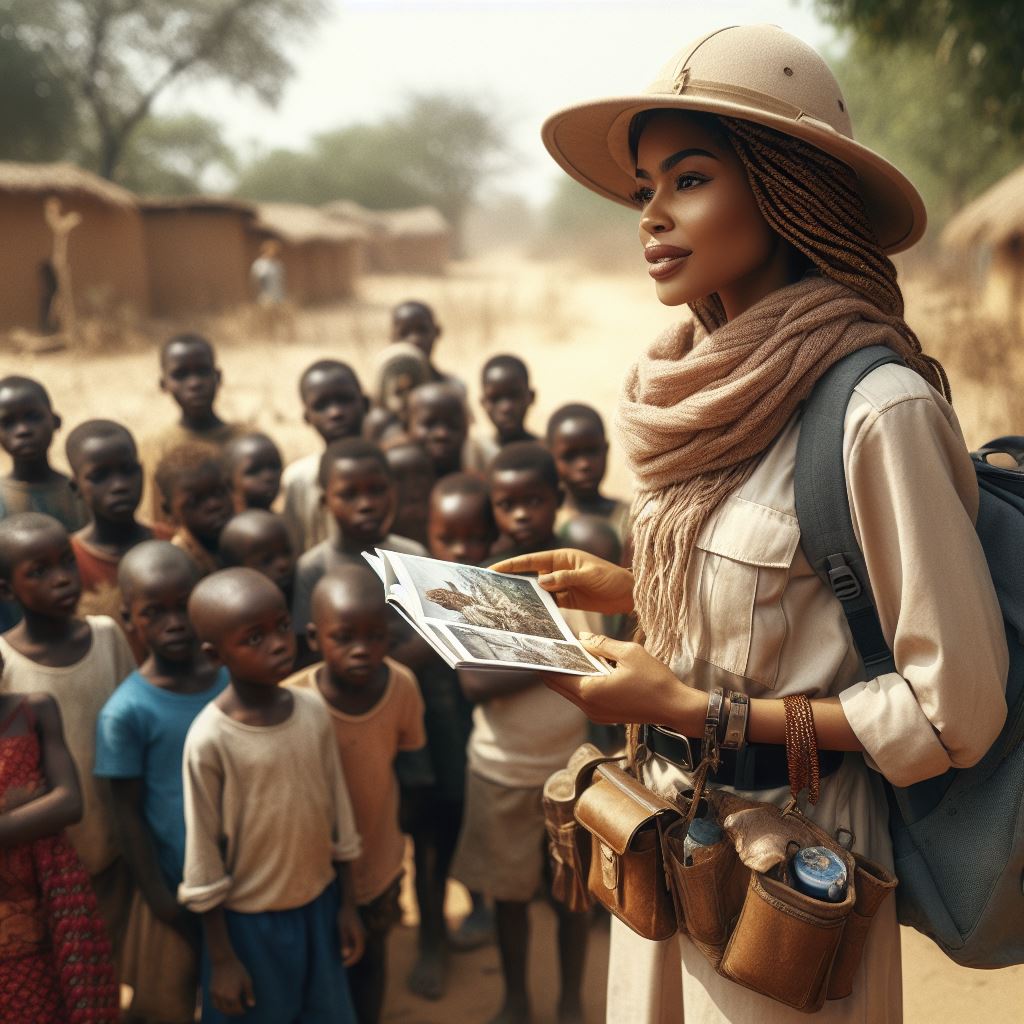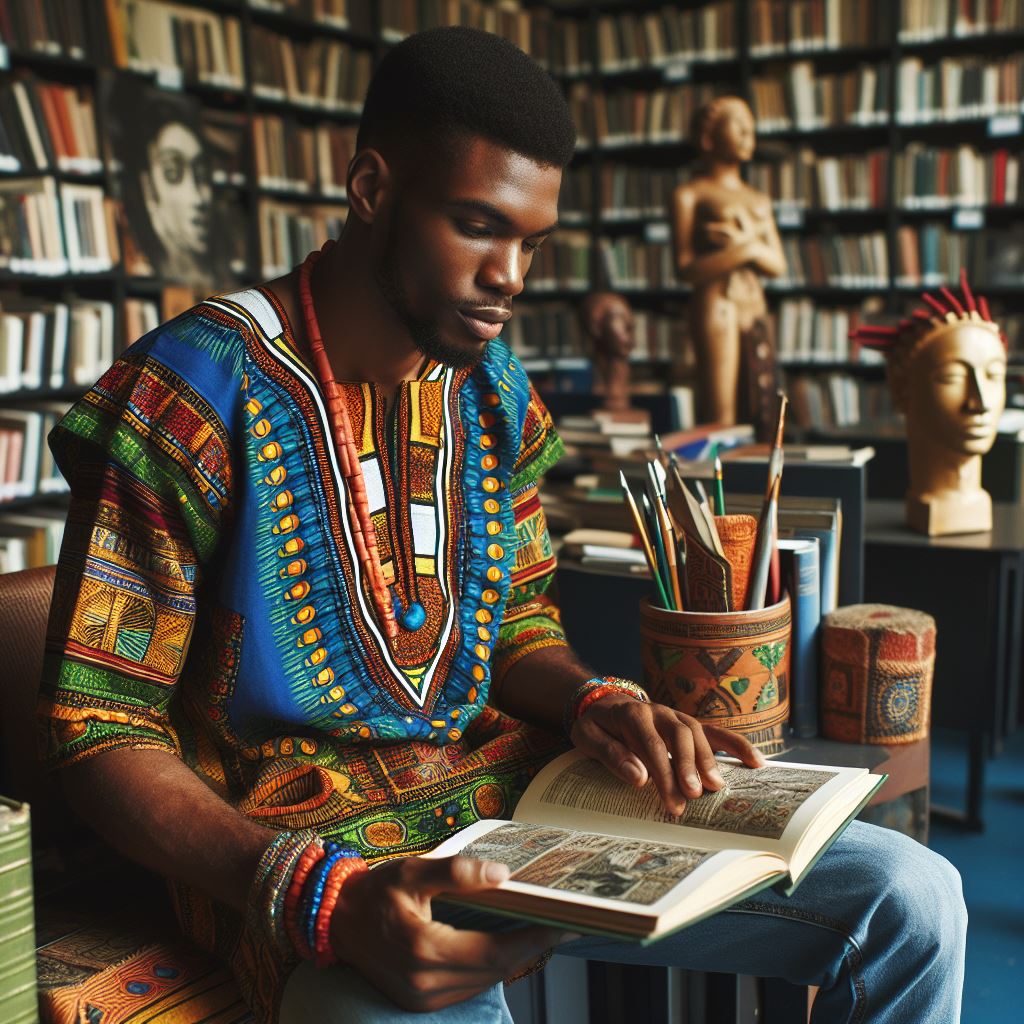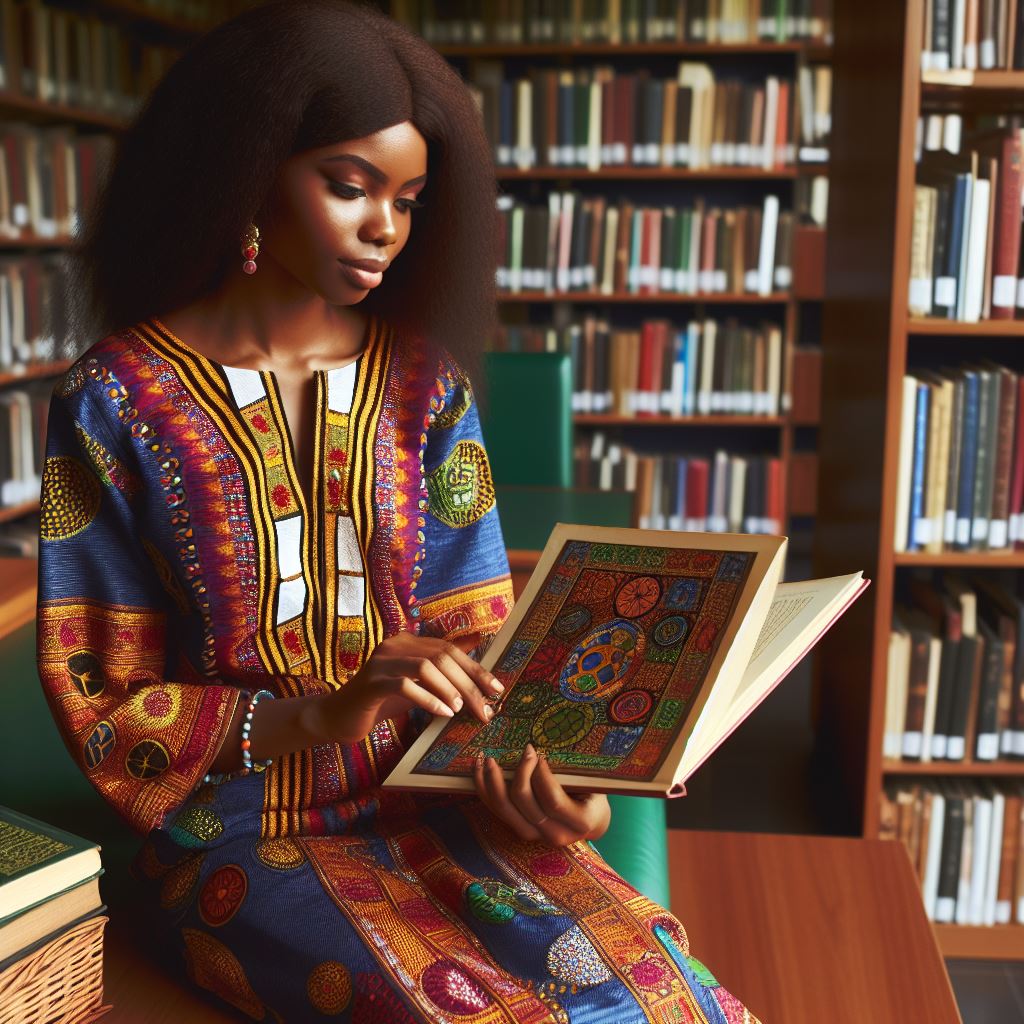Introduction
Anthropology is the study of human societies and cultures. It examines the diversity of human experiences across time and space.
This discipline explores cultural practices, social structures, and human evolution. Anthropologists aim to understand how people live, think, and interact within their environments.
Brief Overview of Anthropology
Anthropology is divided into four main subfields: cultural anthropology, biological anthropology, linguistic anthropology, and archaeology.
Cultural anthropology focuses on contemporary societies and their cultures. Biological anthropology studies the biological and genetic aspects of humans.
Linguistic anthropology explores language and its role in social life. Archaeology investigates past human societies through material remains.
Each subfield provides unique insights into human behavior and history. Cultural anthropologists conduct fieldwork, immersing themselves in the communities they study.
They use participant observation and interviews to gather data. Biological anthropologists often work in laboratories, analyzing human remains and genetic material.
Linguistic anthropologists study languages, dialects, and communication patterns. Archaeologists excavate sites and analyze artifacts to reconstruct past societies.
Anthropology’s holistic approach integrates findings from these subfields to provide a comprehensive understanding of humanity. This approach helps anthropologists address complex questions about human nature and society.
Focus on Nigerian Anthropology
Nigerian anthropology is a vibrant and growing field. It offers unique perspectives on Africa’s most populous nation. Nigerian anthropologists study diverse ethnic groups, languages, and cultures within the country.
They examine issues such as ethnic identity, social change, and cultural heritage.
Nigeria is home to over 250 ethnic groups, each with distinct traditions and histories. This diversity makes Nigeria a rich site for anthropological research.
Nigerian anthropologists explore how these groups maintain their cultural identities while adapting to modern challenges. They investigate how globalization, urbanization, and political changes affect Nigerian societies.
Nigerian anthropology also addresses pressing social issues. Researchers study topics like gender roles, migration, and health. They examine how these issues intersect with cultural practices and social structures.
For example, anthropologists might study how traditional beliefs influence health practices in rural communities. They might also explore how urban migration affects family dynamics and social networks.
Comparative Perspective
Comparing Nigerian anthropology with global anthropology highlights both commonalities and differences. Global anthropology shares the goal of understanding human diversity. However, the focus and methods can vary based on regional contexts.
Nigerian anthropologists often engage in applied anthropology. They use their research to address social problems and inform policy. This practical orientation is shared by many anthropologists worldwide.
However, the specific issues and contexts in Nigeria shape the research questions and approaches.
Global anthropology benefits from diverse regional perspectives. Nigerian anthropology contributes valuable insights into African societies and cultures. It enriches the global understanding of human diversity and commonality.
Generally, anthropology’s broad scope includes the study of cultures, societies, and human evolution. Nigerian anthropology provides unique perspectives on a diverse and dynamic nation.
By comparing Nigerian and global anthropology, we gain a deeper understanding of human societies. This comparative approach enhances our knowledge and appreciation of humanity’s rich cultural tapestry.
This blog post will focus on comparing Nigerian anthropology with global anthropology, highlighting the unique aspects of the Nigerian context within the discipline.
Historical development of anthropology in Nigeria
Anthropology, the study of human societies and cultures, has a rich history in Nigeria, shaped by both indigenous and external influences.
In this chapter, we delve into the historical development of anthropology in Nigeria, comparing it with the global trajectory and examining the profound impact of colonialism and post-colonialism on its evolution.
Early Anthropological Studies in Nigeria
Early anthropological studies in Nigeria were largely carried out by colonial administrators, missionaries, and ethnographers. These studies focused on documenting indigenous cultures, languages, and customs, often with a Eurocentric lens.
Pioneering works, such as those by N. W. Thomas and M. G. Smith, laid the groundwork for understanding Nigerian societies but were often influenced by colonial biases.
Comparison with Global Anthropological History
In contrast to the global history of anthropology, which emerged primarily in the West during the 19th century, anthropology in Nigeria has roots that extend far back into pre-colonial times.
Indigenous knowledge systems and cultural practices provided a foundation for early anthropological inquiry, distinct from Western paradigms.
Impact of Colonialism on Anthropology in Nigeria
Colonialism had a profound impact on the development of anthropology in Nigeria, as it did elsewhere in the world.
Colonial administrators and scholars imposed their own frameworks and methodologies, often overlooking or misinterpreting indigenous perspectives.
This led to a skewed representation of Nigerian societies and contributed to the marginalization of indigenous knowledge systems.
Post-Colonial Developments
Following independence, Nigerian anthropology underwent a period of reevaluation and revitalization. Indigenous scholars, such as Kenneth Dike and J. C. Anene, sought to reclaim control over the narrative of Nigerian cultures and histories.
They emphasized the importance of decolonizing anthropological discourse and integrating indigenous perspectives into scholarly research.
Challenges and Opportunities
Despite strides towards decolonization, Nigerian anthropology continues to face challenges in reconciling indigenous and Western paradigms.
The legacy of colonialism persists in institutional structures and academic biases, hindering efforts to fully embrace indigenous epistemologies.
However, there are also opportunities for collaboration and dialogue between Nigerian and global anthropologists, fostering a more inclusive and diverse field of study.
In general, the historical development of anthropology in Nigeria reflects a complex interplay of indigenous traditions, colonial legacies, and post-colonial aspirations.
While early anthropological studies were influenced by colonial agendas, contemporary scholars are working towards decolonizing the discipline and integrating indigenous perspectives.
By acknowledging and addressing the impact of colonialism, Nigerian anthropology can continue to evolve as a vibrant and inclusive field of study.
Read: Impact of Communication Arts on Nigerian Media
Key Concepts and Theories in Nigerian Anthropology
Overview of Key Concepts Unique to Nigerian Anthropology:
- Negotiating Identities: Nigerian anthropology places a strong emphasis on how individuals navigate multiple identities in a diverse society.
- Colonial Legacy: The impact of colonialism on Nigerian culture and society is a key concept explored in Nigerian anthropology.
- Religion and Spirituality: Nigerian anthropology delves into the intricate relationship between religion, spirituality, and cultural practices.
- Community Dynamics: Understanding the dynamics of Nigerian communities and the roles of kinship and social norms is crucial in Nigerian anthropology.
- Heritage and Tradition: Exploring the preservation and evolution of Nigerian heritage and traditions forms a significant aspect of Nigerian anthropology.
Comparison with Globally Recognized Anthropological Theories
In comparing Nigerian anthropology with global anthropological theories, several key differences and similarities can be observed:
- Cultural Relativism: Both Nigerian and global anthropology advocate for the appreciation of diverse cultural practices without judgment.
- Structural Functionalism: Nigerian anthropology, like global theories, considers the functions of cultural practices within a society.
- Postcolonial Anthropology: Nigerian anthropology uniquely focuses on the impact of colonialism on culture, a perspective that is not universal in global anthropology.
- Feminist Anthropology: Nigerian anthropology is increasingly incorporating feminist perspectives, aligning with global trends in anthropology.
- Sociocultural Evolution: Nigerian anthropology explores the evolution of Nigerian societies, adding a unique perspective to the broader discussion on sociocultural evolution.
How Nigerian Anthropology has Contributed to the Global Understanding of the Field
Nigerian anthropology has made significant contributions to the global understanding of the field through various avenues:
- Cultural Diversity: By highlighting the diversity within Nigerian culture, Nigerian anthropology enriches the broader discussion on cultural diversity globally.
- Decolonization: Nigerian anthropology’s focus on decolonization and its impact on culture has sparked conversations on the legacy of colonialism worldwide.
- Intersectionality: Nigerian anthropology’s exploration of intersecting identities and social structures informs global discussions on intersectionality and identity politics.
- Indigenous Knowledge Systems: Nigerian anthropology sheds light on indigenous knowledge systems, contributing to a broader appreciation of diverse cultural practices globally.
- Social Change: Through examining social change in Nigerian society, Nigerian anthropology offers insights into global processes of social transformation.
In review, Nigerian anthropology presents a unique perspective that enriches the global discourse on anthropology, offering insights into the complexities of culture, identity, and society that resonate beyond its borders.
Read: Internship Opportunities for Communication Arts Students
Methodological approaches in Nigerian anthropology
When it comes to conducting research in Nigerian anthropology, there are several methodological approaches that are commonly used by scholars and researchers.
These approaches play a crucial role in shaping the way studies are conducted and the conclusions that are drawn from them. Let’s take a closer look at some of the key methodological approaches in Nigerian anthropology:
Examination of the research methods commonly used in Nigerian anthropology
- Participant observation: One of the most common methods used in Nigerian anthropology is participant observation, where researchers immerse themselves in the culture they are studying to gain a deep understanding of the people and their way of life.
- Interviews: Another commonly used method is conducting interviews with individuals from the community being studied. This allows researchers to gather firsthand accounts and insights into the cultural practices and beliefs of the people.
- Archival research: Researchers in Nigerian anthropology often rely on archival research to explore historical documents, photographs, and other records that shed light on the cultural heritage and traditions of the Nigerian people.
- Surveys and questionnaires: Surveys and questionnaires are also common methodological approaches used in Nigerian anthropology to collect quantitative data and analyze trends and patterns within a particular community or group.
Comparison with the methodologies used in global anthropology
When comparing the methodological approaches used in Nigerian anthropology with those used in global anthropology, there are both similarities and differences.
While participant observation and interviews are common methods in both Nigerian and global anthropology, the way these methods are implemented may vary based on cultural contexts.
- Global anthropology often emphasizes a more comparative and cross-cultural approach, looking at similarities and differences between different societies around the world. In contrast, Nigerian anthropology may focus more on the specific cultural and social factors that shape the research within Nigeria.
- Furthermore, global anthropology may use more diverse and interdisciplinary methods, incorporating theories and approaches from sociology, history, and other social sciences. Nigerian anthropology, on the other hand, may be more rooted in traditional anthropological methods that have been adapted to fit the Nigerian context.
- Overall, while there are distinct differences in the methodologies used in Nigerian anthropology compared to global anthropology, both approaches ultimately aim to study and understand human culture and society in meaningful ways.
Consideration of cultural and social factors influencing research in Nigeria
When conducting research in Nigeria, it is essential for anthropologists to take into account the cultural and social factors that may influence their work. These factors can impact the way research is conducted, the data that is collected, and the conclusions that are drawn from the study.
- Language and communication: Language barriers can present challenges when conducting research in Nigeria, as researchers may need to rely on translators to communicate effectively with the people they are studying. Understanding local dialects and nuances is critical for accurate data collection.
- Community engagement: Building trust and rapport with the community being studied is crucial in Nigerian anthropology. Establishing relationships and understanding the customs and traditions of the people can lead to more meaningful research outcomes.
- Power dynamics: Anthropologists in Nigeria must be aware of power dynamics within the community and how they may impact the research process. Being sensitive to hierarchies and social structures is essential for conducting ethical and respectful research.
- Ethical considerations: Researchers in Nigeria must adhere to ethical guidelines and standards when conducting their studies. Respecting the privacy and confidentiality of participants, obtaining informed consent, and avoiding harm are all important considerations in Nigerian anthropology.
In essence, methodological approaches in Nigerian anthropology are influenced by a variety of cultural and social factors that shape the research process.
By understanding these factors and adapting research methods accordingly, anthropologists can gain valuable insights into the complexities of Nigerian society and culture.
Read: Language Arts Courses: What to Expect in Nigeria

Areas of focus in Nigerian anthropology
In Nigerian anthropology, researchers delve into diverse cultural, social, and historical phenomena. They scrutinize indigenous practices, rituals, and traditions.
Studying kinship systems unveils intricate social structures. Rituals surrounding birth, marriage, and death offer insights into cultural values. Historical analyses trace the evolution of societal norms.
These investigations illuminate Nigeria’s rich cultural tapestry.
Comparative Perspectives
Comparatively, Nigerian anthropology intersects with global themes but retains distinct nuances. While global anthropology explores universal human experiences, Nigerian anthropology emphasizes localized perspectives.
Global anthropologists study broad topics like globalization, migration, and urbanization. Nigerian counterparts focus on indigenous knowledge, colonial legacies, and post-colonial challenges. This duality enriches anthropological discourse.
Nigerian Anthropology’s Focus
Nigerian anthropology addresses a spectrum of local and global challenges. Researchers examine issues such as ethnic diversity, religious dynamics, and socioeconomic disparities.
They investigate the impact of globalization on traditional practices and cultural identities. Nigerian anthropologists explore gender dynamics within communities, addressing inequality and empowerment.
Moreover, they scrutinize environmental issues, urbanization, and resource management. This holistic approach bridges local concerns with global dynamics.
Local Context: Cultural and Social Issues
In Nigerian anthropology, cultural studies delve into diverse ethnic traditions and belief systems. Social issues like ethnicity, class, and gender shape community dynamics.
Researchers analyze kinship structures, marriage customs, and religious practices. They explore how these factors influence social hierarchies and interactions.
Additionally, they examine the role of traditional institutions in governance and conflict resolution.
Historical Perspectives: Colonial Legacy and Post-Colonial Challenges
Nigerian anthropology critically examines the impact of colonialism on society and culture. Scholars analyze how colonial policies disrupted indigenous systems and identities.
They explore resistance movements and nationalist ideologies that shaped Nigeria’s history. Post-colonial challenges such as political instability, corruption, and ethnic tensions are scrutinized.
By contextualizing historical narratives, anthropologists shed light on contemporary issues.
Addressing Global Challenges
Nigerian anthropology contributes to global dialogues on pressing issues. Researchers engage with topics like sustainable development, human rights, and healthcare.
They advocate for culturally sensitive approaches to international interventions. By understanding local contexts, Nigerian anthropologists offer insights into global challenges.
Their research informs policies and practices aimed at fostering social justice and sustainability.
In a nutshell, Nigerian anthropology encompasses a broad spectrum of themes and issues. From cultural exploration to historical analysis, it provides valuable insights into Nigerian society and its global relevance.
By addressing local and global challenges, Nigerian anthropologists enrich the discipline and contribute to broader conversations on human diversity and development.
Read: Comparing Communication Arts and Mass Communication
Challenges Faced by Nigerian Anthropologists
In Nigeria, anthropologists grapple with limited funding for research.
Fieldwork poses challenges due to diverse cultures and infrastructural limitations.
Access to communities can be hindered by bureaucratic hurdles.
Language barriers often impede effective communication during fieldwork.
Political instability and security concerns can disrupt research activities.
Limited academic resources and outdated infrastructure hamper scholarly pursuits.
Comparison with Global Anthropology Challenges
In contrast to global counterparts, Nigerian anthropologists face unique challenges.
While global anthropologists may encounter funding constraints, Nigerian counterparts face exacerbated limitations.
The diversity of cultures in Nigeria adds complexity to research endeavors.
Global anthropologists may experience bureaucratic challenges, but Nigerian counterparts face heightened obstacles.
Language barriers in Nigeria are compounded by the multitude of indigenous languages.
Political instability in Nigeria presents a more significant hurdle compared to many global contexts.
Resource scarcity in Nigeria is often more pronounced than in more developed countries.
Opportunities for Collaboration and Growth
Despite challenges, Nigerian anthropology offers opportunities for collaboration and growth.
Collaboration with international partners can mitigate funding constraints and facilitate knowledge exchange.
Networking with global anthropologists can provide access to resources and expertise.
Capacity building initiatives can address infrastructural limitations and enhance research capabilities.
Engagement with local communities fosters mutual understanding and trust, overcoming cultural barriers.
Investment in academic infrastructure and technological advancements can propel Nigerian anthropology forward.
Government support and advocacy are crucial for creating an enabling environment for anthropological research.
Transform Your Career with Expert Guidance
Get personalized mentorship consulting that’s tailored to your unique path. Our expert advice is actionable and exclusive.
Get StartedIn fact, Nigerian anthropology faces significant challenges, yet opportunities for growth abound.
By identifying and addressing these challenges, Nigerian anthropologists can enhance their contributions to the global anthropological community.
Collaboration, capacity building, and advocacy are key to overcoming obstacles and fostering a vibrant anthropological landscape in Nigeria.
Through concerted efforts, Nigerian anthropology can thrive and enrich our understanding of human societies and cultures, both locally and globally.
Conclusion
Summary of Key Points
Nigerian anthropology, rooted in diverse cultures, offers unique insights into kinship, religion, and societal structures. Global anthropology, encompassing a broad spectrum, reflects universal human experiences and cultural variations.
Nigerian anthropology emphasizes oral traditions, rituals, and community ties, shaping research methodologies and perspectives.
Global anthropology employs interdisciplinary approaches, integrating sociology, psychology, and archaeology to understand human behavior.
Nigerian anthropology highlights the significance of indigenous knowledge and practices in shaping societal dynamics. Global anthropology emphasizes cross-cultural comparisons to elucidate human universals and cultural relativism.
Nigerian anthropology confronts colonial legacies and challenges Eurocentric perspectives, advocating for decolonization and cultural empowerment.
Global anthropology fosters dialogue and collaboration among diverse cultures, promoting mutual understanding and respect.
Reflection on Significance
Understanding different cultural perspectives in anthropology enriches scholarly discourse and promotes cultural sensitivity. It enables anthropologists to recognize the complexity of human experiences and challenge ethnocentric biases.
By embracing diverse viewpoints, anthropology contributes to global dialogue and fosters inclusivity and empathy. It facilitates the appreciation of cultural diversity as a fundamental aspect of human existence, promoting tolerance and social harmony.
In a rapidly changing world, understanding cultural variations is crucial for addressing global challenges and fostering sustainable development.
Anthropology serves as a bridge between cultures, fostering mutual respect and cooperation in an interconnected world.
Suggestions for Future Research and Collaboration
Future research should prioritize collaborative efforts between Nigerian and global anthropologists to explore shared themes and phenomena.
Collaborative projects can enhance cross-cultural understanding and facilitate knowledge exchange between different contexts. Embracing indigenous methodologies and perspectives can enrich anthropological research and challenge Western-centric paradigms.
Initiatives promoting interdisciplinary collaboration can foster innovative approaches to studying human societies and cultures.
Ethical considerations, including informed consent and cultural sensitivity, should be central to collaborative research endeavors. Embracing digital technologies can facilitate communication and collaboration among anthropologists across geographical boundaries.
Scholarly networks and platforms should be established to facilitate dialogue and exchange of ideas among Nigerian and global anthropologists.
By working together, anthropologists can address pressing social issues and contribute to positive social change on both local and global scales.
In closing, Nigerian and global anthropology offer complementary insights into the richness and diversity of human cultures.
By embracing cultural differences and fostering collaboration, anthropologists can contribute to a more inclusive and equitable world.




